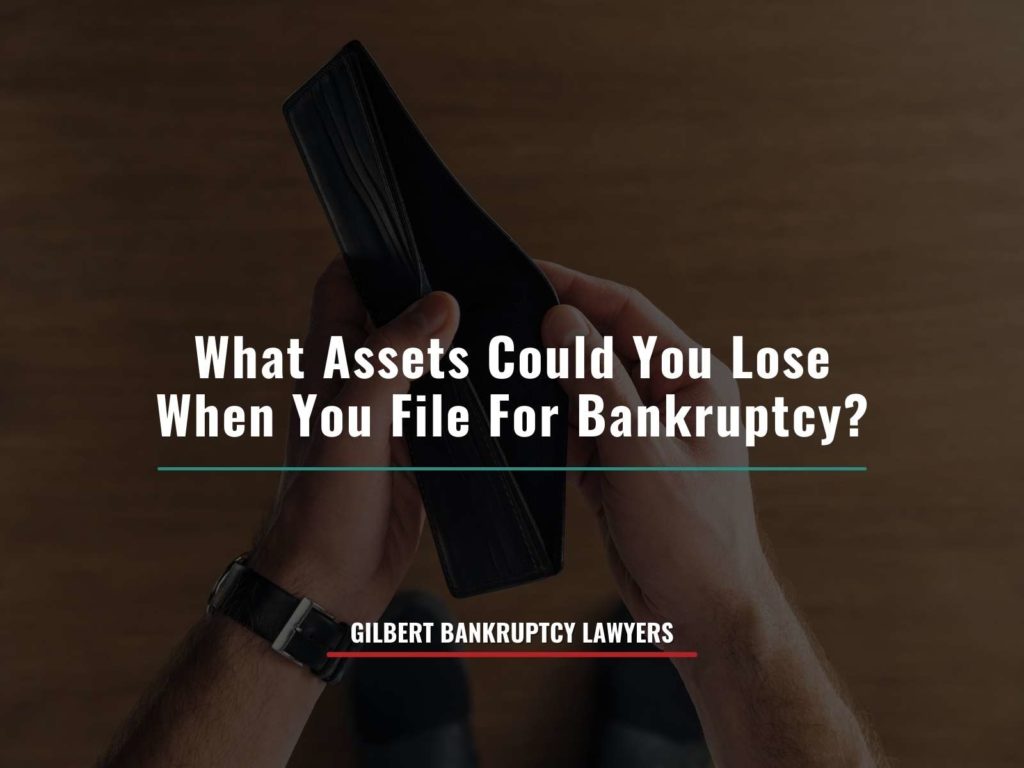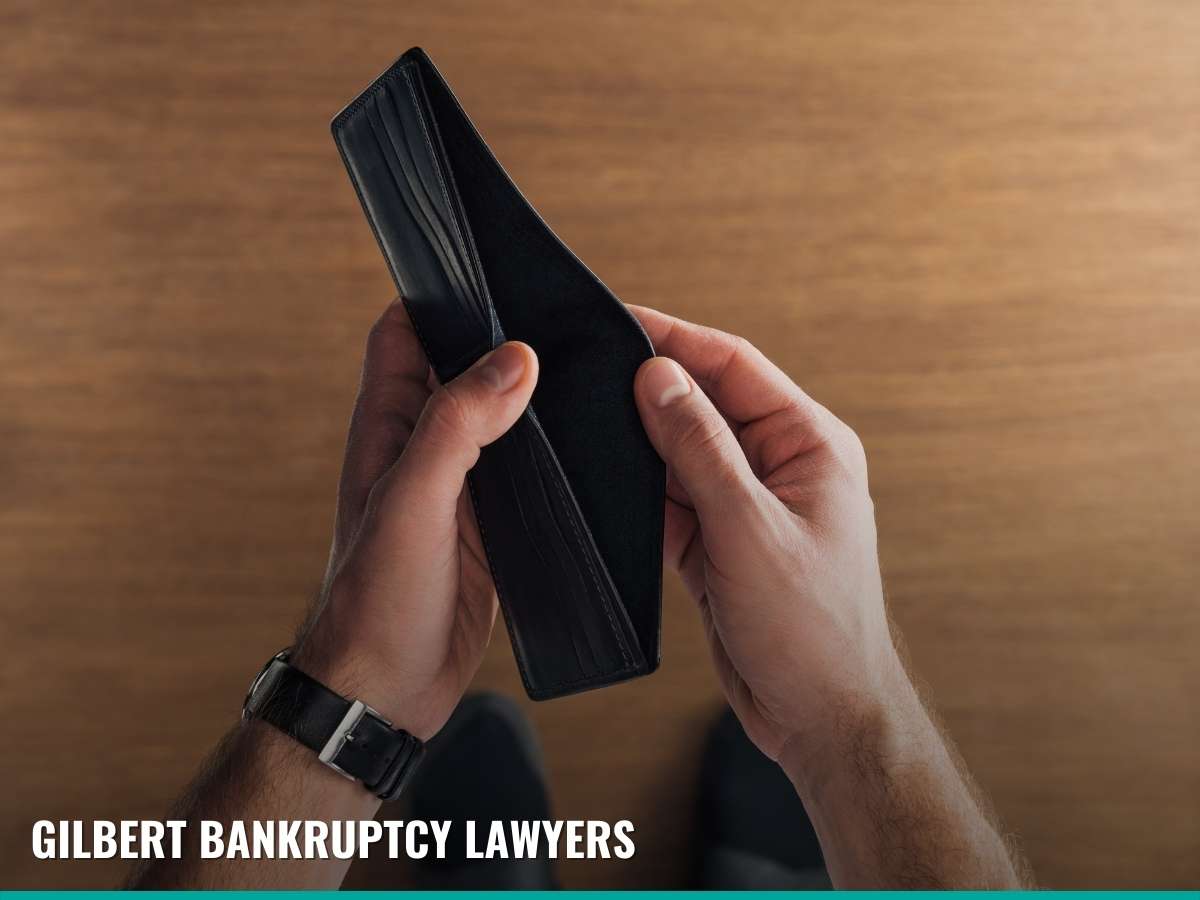What Assets Are Not Protected In Chapter 7 Bankruptcy Proceedings
It’s a common misconception that a person who files for bankruptcy will lose everything they have, but fortunately, this is not true. Both federal bankruptcy laws and Arizona state statutes provide exemptions that protect many specific assets from being garnished in the bankruptcy process.
However, some assets are not protected if you choose to file Gilbert Chapter 7 bankruptcy, instead, they will be sold and used by the bankruptcy trustee to help pay off your debts. Other types of bankruptcy have different regulations and may not include asset garnishing. The lost assets discussed in this article refer specifically to Chapter 7 bankruptcy proceedings.
Essential & Non-Essential Property
Generally speaking, property that may be lost during a Chapter 7 bankruptcy is property that is considered non-essential for a person’s basic necessities. This means your primary home and vehicle may be protected, depending on the circumstances. Each state has its own regulations. If you lived in a state other than Arizona for the 2.5 year prior to your bankruptcy filing, exactly what property is considered essential may be slightly different and will be taken into consideration by the trustee.
The most common assets that can be lost during a Chapter 7 bankruptcy in Arizona include:
Second or subsequent vehicles: Talk with your Gilbert bankruptcy attorney about the vehicles that you own. You may be able to claim an exception for your primary vehicle up to a certain value. However, an additional vehicle that you own is not protected and may be sold to pay your debts. Legally speaking, a vehicle that has your name on the title is considered to be your vehicle even if you are not actually using it. A common situation is where an adult child uses a vehicle that has a parent’s name on the title. Even though it is considered to be the adult child’s vehicle, it legally belongs to the parents and might be lost if the parents file bankruptcy. Choosing to sell or transfer a vehicle before filing for bankruptcy in an attempt to avoid losing it is typically not a good idea and can be considered bankruptcy fraud, so it’s crucial to be straightforward with your bankruptcy attorney about all the details of your situation.
Recreational vehicles: All recreational vehicles, including ATVs, golf carts, and motorcycles that are not your primary vehicle are not protected in Gilbert Chapter 7 bankruptcy.
Vacation homes: Your primary home will be protected in bankruptcy proceedings up to a certain amount, but second or vacation homes are not protected and may be used to help pay for your debts.
Land and investment real estate: Raw land or real estate used for investment, including commercial buildings or rental properties, are not protected in Chapter 7 bankruptcy.
Jewelry: Arizona enables debtors to protect an engagement or wedding ring valued up to $2000 and one watch valued up to $150. Other jewelry is not protected in Chapter 7 bankruptcy.
Investments such as stocks, bonds, and mutual funds: Investments are not protected in Chapter 7 bankruptcy. This can be frustrating because investments are often being used to help provide for retirement. However, certain types of retirement accounts are protected in Chapter 7 bankruptcy. Money that is transferred to a retirement account immediately before a bankruptcy filing may not be protected, so talk with your Gilbert bankruptcy lawyer about investments and retirement accounts, and how to protect your assets.
Is My Home at Risk?
It’s easy to be confused about whether your home or property is at risk when you file for Chapter 7 bankruptcy because the equity in the property is what is considered. Equity is the value of the property minus any liens on it, such as a mortgage. For example, if you own a vacation home that is worth $200,000 and hold a $200,000 mortgage on it, there is no equity in the home, so you would not lose the home in Chapter 7 bankruptcy.
How Can I Protect Property In Bankruptcy?
If you file Chapter 7 bankruptcy and want to keep property that will not be protected, you may have the option to “buy it out” from the trustee. This means you would pay the trustee the equivalent of its value. Typically, this is only feasible for smaller valued items, such as heirloom jewelry or an inexpensive ATV. If you are filing for bankruptcy, you will typically not have the funds available to buy out a higher valued property.
If you have high value property that you want to keep, you may be eligible to file a Gilbert Chapter 13 bankruptcy instead. This type of bankruptcy enables you to keep everything you own because you are essentially restructuring your debts and committing to an affordable repayment plan that will last 3-5 years. There are limitations and qualifications for filing either type of bankruptcy, so consult with your attorney about which type of bankruptcy is right for you and how to protect assets you want to keep.
Consult with Gilbert’s Leading Bankruptcy Lawyers
If you are facing financial hardship or being intimidated by debt collectors and wondering if bankruptcy might be right for you, contact Gilbert Bankruptcy Lawyers to schedule your confidential consultation. With extensive experience in Chapter 7 and Chapter 13 bankruptcy, we can help you understand the legal process, work to protect your rights, and help you determine the best next steps. Contact us today to schedule your free case review!
Gilbert Bankruptcy Lawyers
Office: 480-448-9800
Email: info@myazlawyers.com
Website: https://gilbertbankruptcylawyers.com
Additional Information at:
Phoenix Bankruptcy Lawyer
Mesa Bankruptcy Lawyers
Phoenix DUI Lawyer
Chandler Bankruptcy Lawyer
Tempe Bankruptcy Lawyers
Vegas Zero Down Bankruptcy Attorney
Gilbert Bankruptcy Lawyers
Tucson Bankruptcy Lawyer
Arizona Zero Down DUI
Las Vegas Bankruptcy Lawyers
AZ Bankruptcy Lawyer

